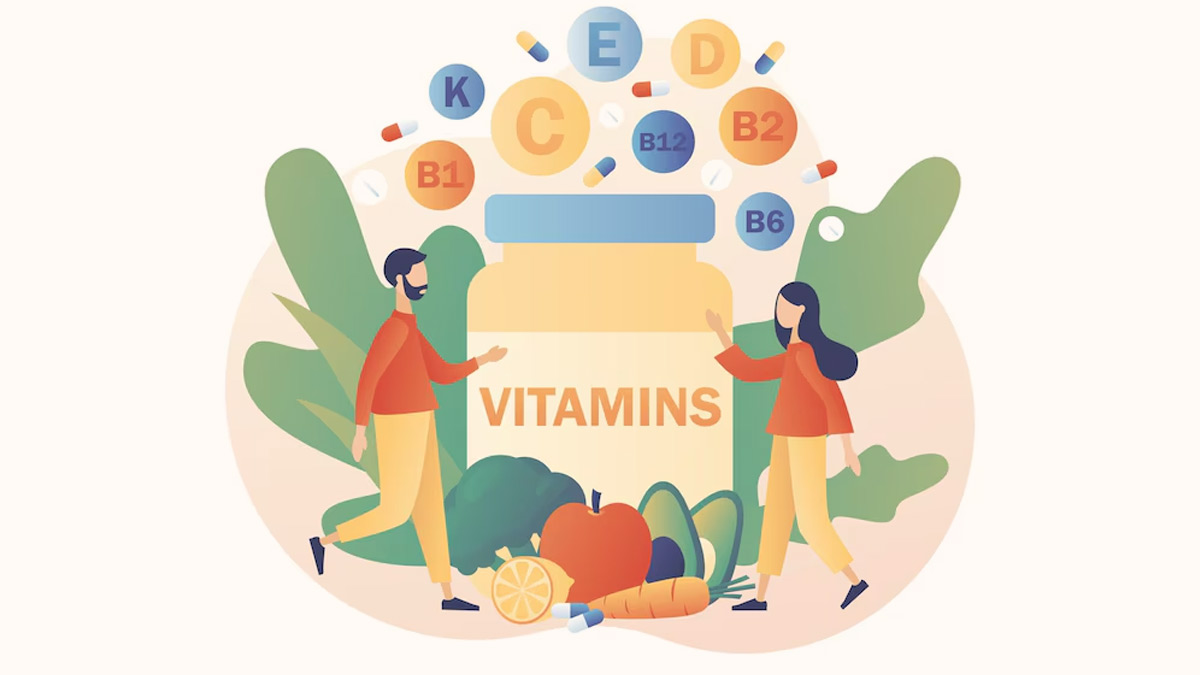
Have you ever looked in the mirror and noticed your skin looking dull, dry, or even spotted with breakouts? These common skin issues may not just be the result of a stressful day or lack of sleep—they could be signs that your body is missing essential vitamins. Vitamin deficiencies can manifest throughout your body, including your skin health. We spoke to our expert Dr Vivek Jagmohan Nigam, Founding Member of International Society of Aesthetic Medicine and Surgery (ISAMS), Andheri West, Mumbai, who listed facial symptoms linked to vitamin deficiencies.
Table of Content:-
Signs Of Vitamin Deficiency On Your Face
Dull Skin: Vitamin C Deficiency

If you’ve noticed that your skin looks tired or lacks its usual glow, it might be a sign of a Vitamin C deficiency. "Vitamin C is necessary for collagen synthesis, a process that produces the protein responsible for keeping your skin firm and elastic. Without enough vitamin C, your skin can become dry, flaky, and prone to signs of ageing like wrinkles and fine lines," said Dr Jagmohan.
According to a 2017 study, vitamin C is a powerful antioxidant that can neutralise and eliminate oxidants, such as those in environmental pollutants from exposure to ultraviolet radiation. To boost your Vitamin C levels, add more citrus fruits like oranges, lemons, and grapefruits into your diet.
Acne and Breakouts: Vitamin B6 Deficiency
Persistent acne and breakouts might be related to a vitamin B6 deficiency. This is because vitamin B6 plays a role in hormone regulation, which can affect oil production in your skin. When your body lacks this vitamin, you might experience increased acne or other skin issues. You can boost your vitamin B6 intake by consuming more poultry, fish, bananas, and legumes.
Also Read: Vitamin IV Therapy: Expert Explains Its Benefits, Uses, Risks, And Limitations
Dry, Flaky Skin: Vitamin A Deficiency

Dr Jagmohan added, "Dry and flaky skin can be a sign of Vitamin A deficiency. This vitamin is essential for sustaining the health of your skin and mucous membranes. It plays a key role in repairing damaged skin cells and boosting the immune system, which means a deficiency can result in dry and flaky skin." Hence, increase your intake of foods rich in Vitamin A, such as sweet potatoes, carrots, spinach, and kale.
Pale Skin: Vitamin B12 Deficiency
Pale or sallow skin could indicate a Vitamin B12 deficiency. This vitamin is essential for red blood cell production, and a deficiency can lead to anaemia, which manifests as pale skin and fatigue.
According to the Office of Dietary Supplements, the body stores around 1-5 mg of vitamin B12, which is equivalent to 1,000-2,000 times the daily intake. Therefore, it can take several years for symptoms of vitamin B12 deficiency to appear. To increase Vitamin B12 levels, eat more animal products such as meat, fish, eggs, and dairy. For those who follow a vegetarian or vegan diet, fortified cereals and B12 supplements can be effective alternatives.
Also Read: Causes Of Vitamin B12 Deficiency Other Than Low Vitamin B12-Rich Food Intake
Redness and Swelling: Vitamin E Deficiency

"Redness and swelling, particularly around the eyes or cheeks, might signal a Vitamin E deficiency. Vitamin E is an antioxidant that helps protect your skin from damage caused by free radicals, and it also supports skin healing", said Dr Jagmohan. Add more Vitamin E-rich foods to your diet, including nuts, seeds, and green leafy vegetables. You might also consider Vitamin E supplements if dietary changes are insufficient, but discuss this with your doctor.
Dark Circles Under Eyes: Vitamin K Deficiency
If you have dark circles under your eyes, it could be a sign of a Vitamin K deficiency. This vitamin is important for blood clotting and circulation, and a deficiency can lead to blood pooling under the delicate skin around your eyes. To improve Vitamin K levels, eat more green leafy vegetables like spinach and kale, as well as broccoli and Brussels sprouts.
[Disclaimer: This article contains information provided by an expert and is for informational purposes only. Hence, we advise you to consult your own professional if you are dealing with any health issues to avoid complications.]
Also watch this video
How we keep this article up to date:
We work with experts and keep a close eye on the latest in health and wellness. Whenever there is a new research or helpful information, we update our articles with accurate and useful advice.
Current Version